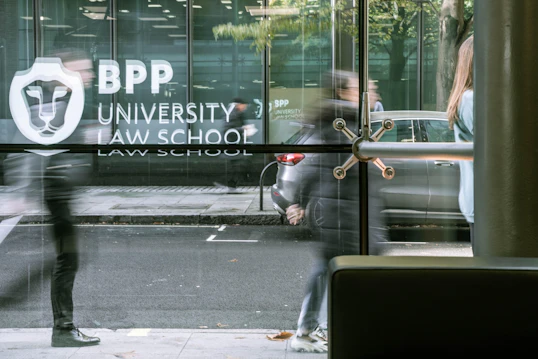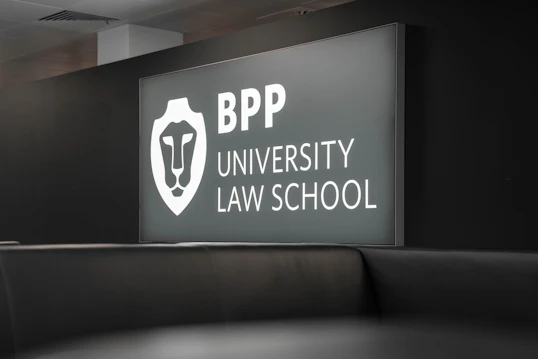What is a law conversion course?
A law conversion course (commonly known as a PGDL or a GDL), is a postgraduate qualification designed for non-law graduates or career changers who are looking to pursue a career in law.
Why do a law conversion course?
A law conversion course gives you the knowledge and skills you need to access a legal career.
Once you’ve passed the PGDL or GDL*, those looking to pursue a career as a barrister will go on to study the Barrister Training Course (BTC). For those wanting to qualify as a solicitor, you can then go on to study for the Solicitors Qualifying Examination (SQE) and find a preparation course that suits you.
Alternatively, as a non-law graduate, you can opt to study a master’s course that combines a law conversion course with SQE preparation, such as our LLM Law Conversion with SQE1. This type of course will build your core foundational legal knowledge, before developing expertise of the legal practice areas that are assessed in SQE1.
While studying a law conversion course you’ll learn the core legal principles and theory, along with the foundational professional skills that will set you up for a successful career as a solicitor or barrister.
Law conversion courses
Frequently asked questions
If you can’t find the answer to a question, our advisers will be happy to help.
The law conversion course is available to graduates of any degree.
The full entry requirements are: Minimum 2:2 honours degree (or equivalent) in any subject from a recognised UK institution (or overseas equivalent)
If you’re a STEM graduate looking to get into law, you can find advice through STEM Future Lawyers.
What's the difference between a solicitor and a barrister?
There are many differences between the work of solicitors and barristers.
Most barristers work in chambers and represent their clients as advocates in court. Solicitors carry out a much wider range of work, covering non-contentious instructions (such as business and real estate transactions) which are office-based, as well as litigation. Solicitors tend to work in law firms or in-house.

Becoming a solicitor

Becoming a barrister
The skills needed to be a lawyer
One of the great benefits of converting to law as a non-law graduate or career changer is the wealth of transferrable skills you can bring to your legal training and professional career.
Here are some of the key skills and attributes that lawyers require to succeed in practice:
Digital literacy
Advocacy Drafting and writing skills
Business accumen
Emotional intelligence
Organisation and planning
Creativity
Communication
Leadership
Resilience
Accuracy and attention to detail
Team-working
Getting you ready for your legal career
Book a Virtual Open Evening
Booking a virtual open evening is a great way to get a feel for BPP. You’ll chat with tutors and students and get to know about important things like funding, work experience and securing a training contract.How you learn at BPP
When you study at BPP, you will experience an innovative and personalised learning methodology that is specifically designed to best prepare you for your assessments and a successful career in legal practice.Qualifying work experience (QWE)
If you’re taking the SQE route to become a qualified solicitor, you will need to complete two years of full-time qualifying work experience (QWE).Employability and pro bono
We train lawyers from over 260 leading organisations across the world, and our alumni work at 19 of the top 20 global law firms.Speak to an adviser
*It is a regulatory requirement for non-law graduates to have passed a law conversion course before starting the BTC. Although it is not a regulatory requirement for non-law graduates to pass a law conversion course before starting their SQE journey, it is strongly recommended by most leading laws firms and it is an entry requirement on some SQE programmes.


